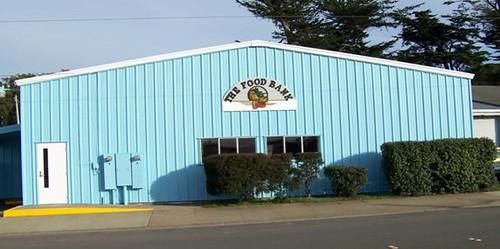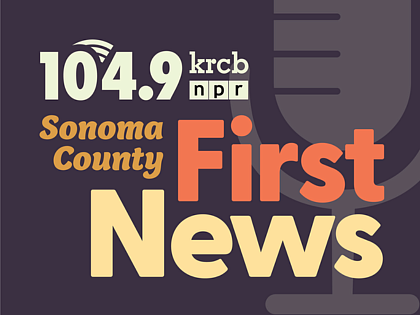 photo credit: USDA
photo credit: USDAThe Fort Bragg Food Bank, in Fort Bragg, CA.
The Trump administration's cuts to federal food aid programs are causing devastating ripples in communities across the country.
That's all while food banks face surging demand.
At a recent Fort Bragg City Council meeting, Amanda Friscia, executive director of the Fort Bragg Food Bank and the Mendo Food Network, detailed the impact of those federal budget cuts on some of the North Coast's most vulnerable people.
She explained that in April, the food network had to lay off two pantry coordinator positions and curtail programs that directly impact families and seniors.
Marlene Schwartz, a human development and family sciences professor at the University of Connecticut, said the loss of the federal funding, "just puts more pressure on the the other sources of funding that both schools and food banks rely on."
The Mendo Food Network's programs cover the entire county through food bank pop-ups in Leggett, Laytonville, Ukiah, Anderson Valley, and Gualala.
The nonprofit also operates the Fort Bragg Food Bank, and delivers food to the Redwood Coast Senior Center in Fort Bragg and to Willits Daily Bread in Willits.
In 2023 alone, the food network said it served almost 30,000 individuals and distributed 2.6 million pounds of food across Mendocino County, receiving close to $100,000 of food each quarter last year, an amount they do not expect to receive this year.
Schwartz said the abrupt funding losses, besides hurting food aid recipients, also put farmers and ranchers in a dangerous position.
"One of the things that's really helpful for them is to be able to predict purchasing," Schwartz said. "So when there's funding available...and they know that they can set up their contracts and [there are] guaranteed buyers of the products that they are growing or producing, it makes their job much better."
Staff with the Mendocino Food Network said for now they are still able to pay for locally produced food and that they are doing their best to limit the loss of food aid for residents.

 Live Radio
Live Radio




